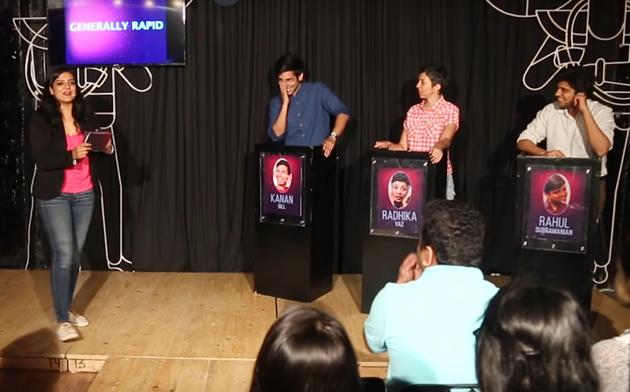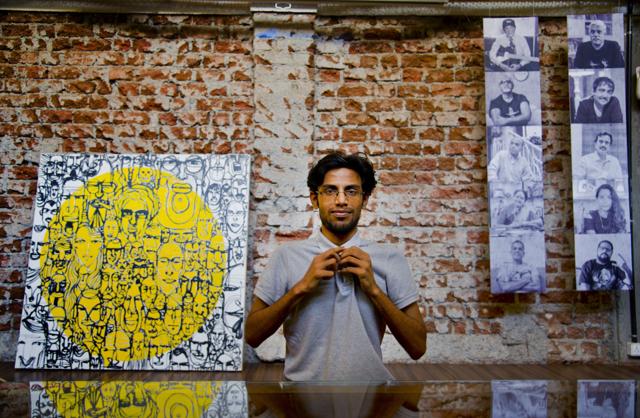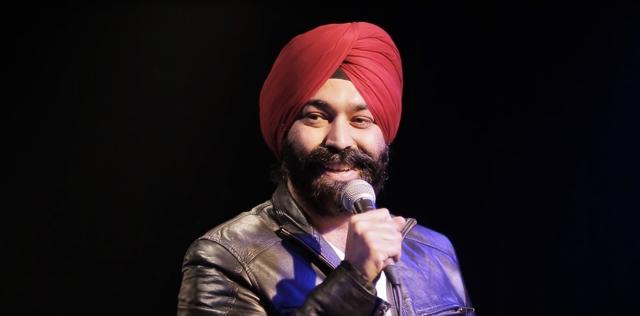LOL: Stand-up comedy hits refresh with quiz, game show formats
It could be a debate about film stars. Or a quiz question about the price of kitchen utensils. As long as you’re funny and the audience is cheering, everbody wins.
Traditional stand-up comedy, which involves a single comedian addressing an audience, is about a decade old in India. Long enough to have grown some tentacles, and sure enough new formats are now emerging. Among these, the comedy jugalbandi, where two comedians riff on their lives, relationships and each other; comedy debates that take on absurd subjects for entertainment; quiz shows where there are no right answers and the prizes are a joke.

The new formats serve to keep monotony at bay, comedians say. They make sure the show stays entertaining, and force the performer to stay creative and unpredictable.
“I’d liken non-traditional comedy to the frenzied excitement of T20 cricket,” says Vikramjit Singh, the man behind the viral stand-up videos about life in north Delhi. “In cricket parlance, you come out and hit it out of the park and enjoy yourself. In the process, non-traditional formats help you develop your comedy muscle.”
THE GAME SHOW
In the show devised by comedian Kaneez Surka, 35, which wouldn’t be out of place in Alice in Wonderland, the points don’t matter. In some rounds, neither do the answers — contestants get points if they can show how their response is close to the right answer.
What makes it fun is that the contestants are often frontline stand-up comedians or actors — Varun Grover, Daniel Fernandes, Anu Menon, Sumukhi Suresh — each struggling to be wittier than the rest. The questions range from the trivial but interesting (‘What sound does a giraffe make?’) to the bizarre (‘Guess the prices of this household item’).

In the final round, contestants have to improvise a rap song on the spot while drawing something. “I randomly give points, and then award a hamper at the end. The hamper is things from my house that I don’t use,” Surka says. “A bottle of chutney, a T-shirt, a pair of pants, reusable plastic straws, an old grater, used perfume. One time there was also a malfunctioning smartphone.”
One contestant, comedian Zakir Khan, won ‘an 11-hour Mumbai darshan with Kaneez Surka’. “He keeps asking to do it, and it’s really unfair that I haven’t done it yet. But we actually honestly plan to do the Mumbai darshan, so we can air it on YouTube as well.”
The shows are filmed live at the Cuckoo Club in Mumbai and uploaded to Surka’s YouTube channel under the title, The General Fun Game Show. There have been 15 episodes so far, with the next due for upload in July.
THE MOCK DEBATE
Who’s better, Shah Rukh or Aamir Khan? Is there even an answer? If you’re a comedian on The Big Comedy Debate, organised by Das and Desai, you need to think up good reasons for picking either one, and you need to do it fast. The Big Comedy Debate follows the mock debate format and features two teams, of three comedians each, debating silly, chuckle-worthy subjects given to them on the spot.
Topics may include ‘Do aliens exist?’, ‘Is the book better than the movie?’, and ‘Vegetarians versus non-vegetarians’. Previous shows of TBCD have featured Kaneez Surka, Aadar Malik and Siddharth Dudeja.
The only logic that rules is the logic of comedy, to which every other rule of debating is subject. “At the end there is one winner,” Das says. “At the end of the debate, we ask the audience to cheer. Whichever team gets the bigger cheer, wins. If the audience cheers equally loud, there is a tiebreaker round. The only prize is bragging rights.”
THE COMEDY JUGALBANDI
It’s the same story, from different perspectives. In their jugalbandi show called A True Tinder Tale, comedians Shreemayee Das, 25, and Rohan Desai, 30, who met on Tinder, take turns telling the audience, over the course of an hour, how they began dating, how the relationship progressed, and what it’s like to be living together.
They begin by discussing how different a dating app experience can be for a man and a woman, move on to their individual takes on their first date.
“At some point, we go to see a film. It’s our second or third date. I think she’s having a great time. Actually she’s trying not to fall asleep,” Desai says, laughing. “To stay awake, she is moving her hands around. I think she’s feeling romantic.”

When dealing with such a topic in traditional comedy, there is the chance that the telling of only one side will begin to sound a little offensive or sexist, Das says. “Hearing both sides told just makes it more complete.”
Das and Desai have performed their comedy jugalbandi in Mumbai, Ahmedabad, Vadodara and Surat since October 2018. Their next show is in Mumbai, at the end of the month.
For other versions of the jugalbandi format, you can check out The Honeymoon Special on Netflix, in which American comedians Natasha Leggero and Moshe Kasher make their relationship the focus of their comedy.
CROWD WORK
If you’ve been to a live comedy show, you’ve already seen a bit of crowd work. Most stand-up shows begin with the comedian ‘picking on’ people seated in the front row (it’s an unspoken understanding when you book those seats). The idea is to get the audience to shed its inhibitions and get in the mood to laugh.
The comedian doing crowd work uses no prepared jokes in their set. Instead, they ask the audience questions and use their answers to make up jokes on the spot. It’s a way, comedians say, of testing their abilities — especially given that the audience members targeted are free to hit back.
“To do it, you need an instinct which is probably a people-loving instinct,” says comedian Vikramjit Singh. “I do crowd work for the same reason that I go to a party — asking people what they do and so on. I have noticed this in other comics too. The comics who do crowd work, they are people-loving people.”






